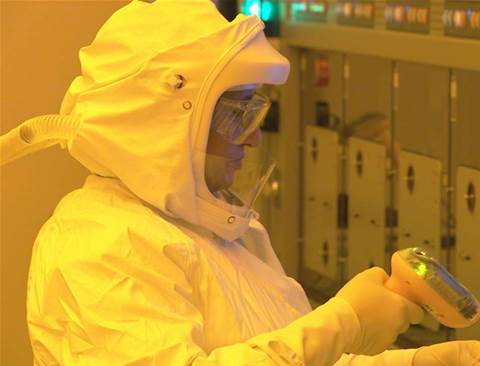“If Australia’s ICT sector was a national swim team, there’d be a huge outcry at its current state. We’d be throwing everything at it to make it go faster – special diets, training, coaches, the lot.
“We would bother, because we’d understand that the team had the talent – it just needed the support. So I’d like to let us bother about ICT innovation too.
“I have a deep conviction that it can flourish in this country, if it can attract the support it requires. You can rest assured that NICTA will be doing its part to bring home the gold.”
Delivering the keynote address at the Influence Forum 2008 in the Hunter Valley this weekend, Skellern condemned Telstra’s historical record as a poor investor in R&D.
“Companies like Telstra are a disgrace when it comes to research and development,” he said.
“[Telstra] made $4 billion profit last year; in the last few years it’s closed down a 650 person R&D centre. It now seeks all of its knowledge from what it’s going to do in the future from multinational global network equipment providers.
“I can’t identify any innovation that Telstra does. Perhaps they do; they don’t make it public.
“[Companies like Telstra] should be brought to task by [the media] and the public.”
Skellern said that once upon a time, Australia’s technology interests in the global market would have been pursued by the Telecom / Telstra Research Labs, which no longer exists.
Good ideas were vulnerable to the 'valley of death', which Skellern described as 'the place where valuable intellectual property and the creative spark of research are easily extinguished for want of financial or ideological support'.
“Government should support companies and the publicly funded research institutes that bridge the gap between research and business,” he said.
Skellern quoted a report by Terry Cutler on the state of innovation in Australia. The report found that only one third of Australia’s firms invest in innovation and research and development.
“Research and development in Australia represents 1.76 per cent of gross domestic product; that’s well below the OECD average of 2.26 per cent.”
Skellern said that the way forward was for Australia to develop a “global scale commercial R&D capacity.”
“This’ll help bridge the innovation gap by developing strong industry engagement, channels to market and industry research and development skills,” he said. “Information and communication technology is innovation technology.”
NICTA is a national ICT research centre that has partnerships with seven Australian universities. It oversees 730 scientists, engineers and staff, including 75 university staff and over 350 PhD students.
Telstra 'a disgrace' to Aussie R&D, NICTA CEO says
By
Kathryn Small
on Sep 24, 2008 6:31AM

Got a news tip for our journalists? Share it with us anonymously here.
Partner Content

Think Technology Australia deliver massive ROI to a Toyota dealership through SharePoint-powered, automated document management

Beyond the box: How Crayon Is Redefining Distribution for the Next Era

MSPs with a robust data protection strategy will achieve market success

How Expert Support Can Help Partners and SMBs Realize the Full Value of AI
.jpg&h=142&w=230&c=1&s=1)
New Microsoft CSP rules? Here’s how MSPs can stay ahead with Ingram Micro







.jpg&w=100&c=1&s=0)








_(1).jpg&q=95&h=298&w=480&c=1&s=1)


